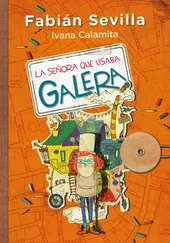When he approaches the woman, she is already defending herself.
You said to let her go, that I didn’t have to do anything. You said she’d stay put. She took off. I tried to call you, but you were too far out, she rants. There is a smooth depression in the sand in the place where the dog was.
Which way did she go?
That way.
He thanks her and takes off running over the firm sand toward Siriú. He passes a kiosk with half a dozen thatched umbrellas protecting obese men and women, the unmanned lifeguard post, a platform built on top of a knoll with exercise bars. He keeps running until he sees the dog in front of the lookout in the camping ground, drinking the water trickling from a cement pipe. He kneels next to her and strokes her vigorously, pulling her ears back. The dog pants with her wet tongue hanging out and appears to be smiling, as all dogs do when they are hot. There you are, he says in a reprimanding tone of voice. Rather than a problem, Beta’s solo walk is a welcome sign of her old energy and initiative. She follows him back to the car, but she stops several times and needs to be called again. He calls her by her name in a dry, commanding voice, as his father used to.
• • •
T hat afternoon he starts house hunting. He visits three real estate agents and gets just one contact. The agents say there are no yearlong rentals in the town. One of them even seems angry about it. People here don’t rent for the whole year, only for long weekends and the tourist season. We’re trying to change this culture. Garopaba is going to grow a lot over the next few years. People are coming here to live. Property owners want to charge an arm and a leg in the summer and not think about the matter for the rest of the year. You won’t find anything.
He gives up on the real estate agents and drives around the streets near the beach, looking for rental signs and marking the addresses on a map of the city. Contrary to what the agents say, many landlords are willing to discuss year-round rentals. One of the houses he sees is on Rua dos Pescadores, in the heart of the original fishing village, separated from the beach only by the fishermen’s sheds. The varnished brick facade has two windows with cream shutters and practically juts out over the beaten-earth sidewalk and cobbled street, where barefoot children, dark from the sun and scantily clothed, are holding a penalty shootout with a torn, deflated ball. There is a faint smell of fish and sewage in the air. Over the murmuring of the waves, he can hear an old man guffawing, pool cues clacking, and women whispering on the side veranda of the house across the way.
The owner of the house, Ricardo, is a nervous Argentinean who seems to switch off at regular intervals as if he doesn’t want to stop thinking about some urgent problem. He looks to be in his early forties and has watery eyes and gray stubble on his chin. They walk down the driveway to the back of the house, where the entrance is. An outdoor grill made of scorched bricks piled up on the ground looks as if it was built many summers ago. The patio is all cement and gravel. The floor and walls of the veranda are covered with horrible whitish tiles that remind him of cold and death. The house is neat and tidy on the inside but too dark, even with the windows open. The noises of the calm afternoon reverberate in the rooms and suggest the infernal symphony of busier days.
Ricardo doesn’t interfere or explain anything, just accompanies him through the house. He seems impatient. As they leave, Ricardo asks in a lazy mix of Spanish and Portuguese why he is moving to Garopaba. He says he just wants to live near the beach, and the Argentinean replies that yes, of course, everyone wants to live near the beach, but why does he want to live near the beach? Naturally hard-wired not to trust Argentineans, like so many Brazilians from the south, he ignores the question. After locking the door, Ricardo asks if he surfs. He says he doesn’t. He asks if he wants to learn to surf. He says he doesn’t. He asks if he intends to open a business. It’s not in his immediate plans. The Argentinean gives him a good once-over.
Then the problem is woman.
What?
People come to surf or to forget woman, solo eso .
I just want to live near the beach.
Sí, sí . Of course.
How long have you lived here?
Almost ten years.
And why did you come here?
To forget woman.
Did you?
No. You rent the house?
No. I think it’s too dark.
Dark. True. Well, good luck.
• • •
H e parks the car in the Hotel Garopaba garage and pays the employees an extra thirty reais not to see the dog. He lies on the bed as it grows dark outside. His nap is interrupted twice by phone calls, which he tries to keep as short as possible because his cell phone is from Porto Alegre and the roaming charges are devouring his credit. His friends are calling to wish him happy birthday and to give their condolences after his father’s death, unaware that he doesn’t live in Porto Alegre anymore and that he left without telling many people, a detail that he himself omits because he knows he still doesn’t have any answers or patience for the questions they might ask.
He wakes up hungry and feeling as if he has been inside for too long. He leaves the dog in the room with some dog food and water and heads out on foot to look for a restaurant. He takes the map with him to mark the locations of relevant places and people, a preventive measure against the pathological forgetfulness he has had since he was a child. He passes two bars offering steak and cheese sandwiches, then a buffet with hot meals and ice creams. A pizza parlor on the main avenue has a special all-you-can-eat price that night. The attractive round wooden tables are almost all taken, and three waitresses glide calmly past, serving the customers, who are colorfully lit by hanging oriental lanterns in the shapes of vases and stars. He picks a table for two in the outside area, near the sidewalk, the seat for which is a comfortable sofa with its back to the wall. The waitress who serves him is a tall brunette with skin peeling from too much sun, pouting lips, and shoulder-length curly hair. Knowing that her hair alone is probably enough to recognize her by, he nevertheless focuses on her oval face and slanting eyes. Sometimes he wonders if women in general are as beautiful to other men as they are to him, inwardly suspecting that his incapacity to remember any human face for more than a few minutes gives them extra appeal that others might think was just his eyes playing tricks on him. Because beauty is fleeting, he has learned to see it everywhere. This woman, however, must be beautiful to everyone. She is used to being looked at like this and returns his stare with a combination of politeness and tiredness, activating a perfunctory smile. With the rising inflections typical of small-town Santa Catarina, contaminated with sarcasm or incredulity, she asks if he wants the all-you-can-eat.
Are the pizzas the same as the ones on the menu?
What do you mean?
Do they use the same ingredients as they do on the pizzas on the à la carte menu? Or is the cheese on the all-you-can-eat ones not as good?
She lets out a hearty laugh, changing to co-conspirator with surprising ease.
Just between you and me, the cheese isn’t as good.
Okay. I won’t be having the all-you-can-eat, then. It’s my birthday. I’ll have a half-margherita, half-pepperoni, please.
Well now. It’s your birthday. Happy birthday!
She chews on some gum that was hidden in a corner of her mouth.
And a beer.
She finishes taking his order and leaves. It is a while before she returns with his beer. He focuses on her face again.
You should wear your hair up.
Читать дальше












